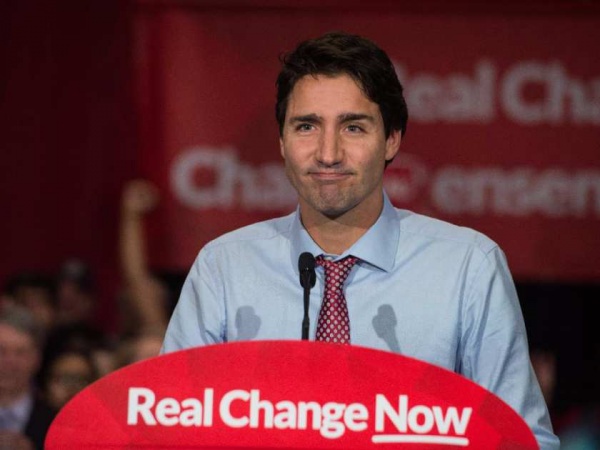To the majority of the public’s approval and a minority’s chagrin, the Liberal government has pledged to take in 25,000 refugees before Christmas. Whether dealing with climate change initiatives or Syrian refugees, the Canadian government will set specific policy targets. While setting lofty goals is admirable, it is not always the best solution to a problem; rather it is a political success in and of itself.
When a prime minister announces to the country that the government will strive to achieve a particular goal—say, cutting greenhouse gas emissions by six per cent in the next 12 years—it is usually seen by the public as laudable. Simply setting these targets becomes an accomplishment unto itself. As with the Canadian government’s Kyoto commitments to cut greenhouse gas emissions by six per cent by 2012, setting the targets allowed the government to claim they were addressing climate change—regardless of whether or not the goals were achieved. In the end, even though the six per cent reduction was not achievable, the government benefitted. If, instead, the government were to have not set concrete (and unreasonable) targets, much more might have been achieved in the cutting emissions.
Specific pledges are not always unreasonable, however, and are often actually achieved. But when goals are met, this can create the problem of seeing ongoing issues as ‘solved.’ When the target is attained, focus is often shifted away to a different issue, even though the initial problem is ongoing and more can be done. Had the Kyoto commitments actually been achieved, it is not hard to see the government claiming to have done their part to address climate change, and seeking to move on to other politically salient issues.
If the Liberal government's pledge to take in 25,000 refugees before Christmas is successful, then it could have the dangerous effect of satisfying the Canadian government’s political requirement to assist in the refugee crisis. Were the government committed to the issue long term, many more refugees might make it to Canada, as there would be no specific amount that Canada would be striving to take in. Twenty-five thousand refugees is a high bar, and could pressure the government to do more than it otherwise would in addressing the current crisis.
The problem is not the first—and certainly not the last of its ilk. It could be more beneficial to restructure Canada’s immigration system to be able to accept a higher number of refugees continually than to spend political capital on a one-time influx of 25,000. The only costs of shifting policy from a temporary target to creating a better immigration system are political. Prime Minister Justin Trudeau would not be able to announce— presumably in front of a large crowd (possibly with some grateful newly immigrated Syrians behind him)—that Canada has done a great thing. Instead, a government institution would fulfill its mandate efficiently and quietly in the background. Effective government bureaucracies are invisible when they are working, and invisibility doesn’t score many political points.
Hearing the prime minister announce a new goal that the government has set stirs feelings of pride—a sensation that is magnified when it is actually reached. Setting a high bar on any relevant issue, whether climate change or the refugee crisis, captures the public’s eye and tends to garner high approval; however, lofty targets often do little to solve continuing problems and fail to address underlying structural issues. Instead, it is sometimes beneficial to take the modest path, working on long term solutions, that while not as noble-looking to the public, ultimately do more.









